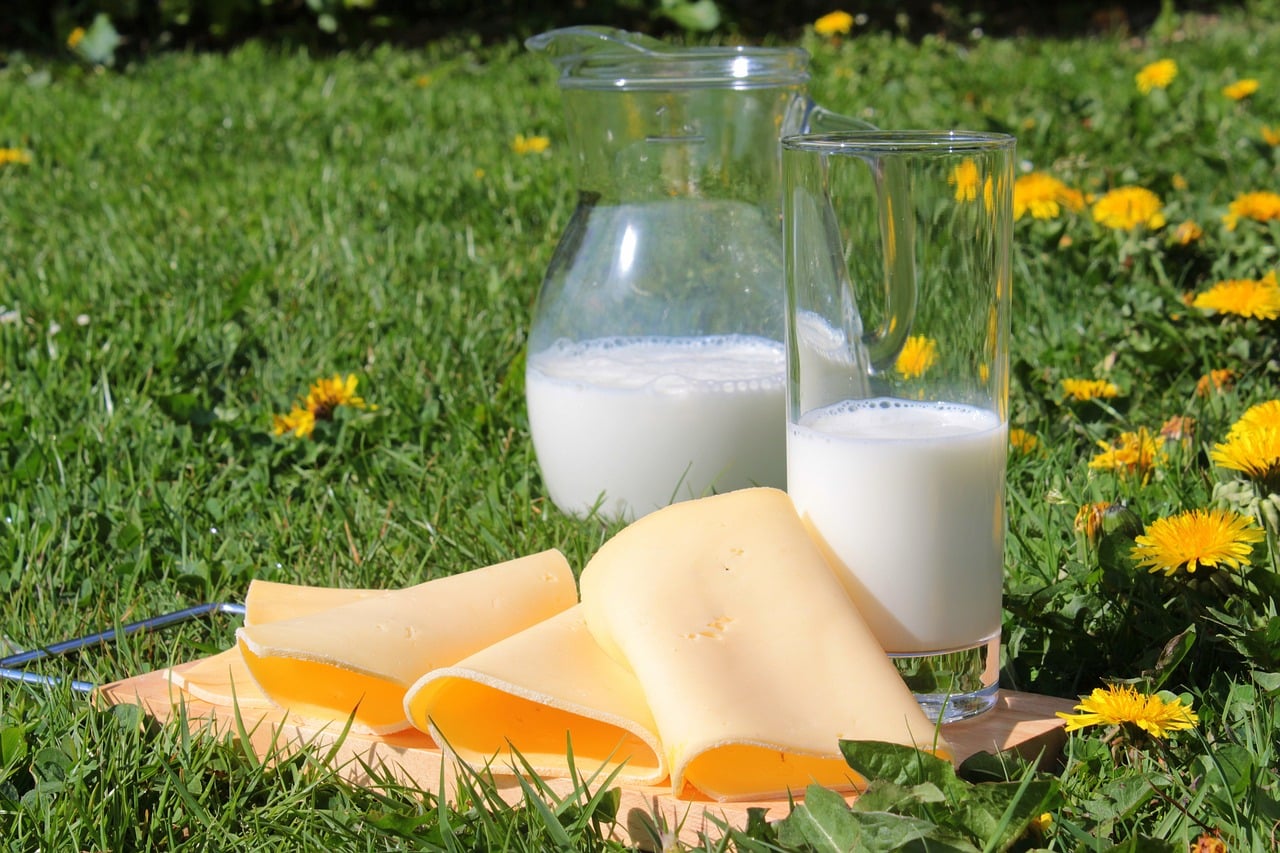
Dairy products are a source of calcium.
Calcium is the chemical element with atomic number 20 and symbol Ca. It is a white or gray metal, which is usually found in the form of sulfate (such as gypsum ) or carbonate ( calcite ) and is very abundant in the Earth 's crust.
Humphry Davy was the one who discovered calcium in 1808 , through the electrolysis of an amalgam of mercury and lime. For many years, until the beginning of the 20th century , calcium was only obtained in laboratories.
About calcium
Calcium - a term from the scientific Latin calcium - is an important component in bones, teeth, shells and various plant structures. In combination with oxygen , calcium develops lime , used in construction.
Calcium burns forming calcium oxide and nitride . In the presence of environmental humidity, it reacts forming hydroxide , while, in contact with water, it releases hydrogen .
The substance in the body
In organisms, calcium appears as calcium ion or as part of other molecules. Calcium ions are responsible for regulating muscle contraction (along with potassium and sodium ) and are involved in glycogen metabolism.
Skeletal calcium (which is stored in bones) therefore participates in metabolic activities. It is usually located at the end of the long bones, although it is mobilized to meet growth needs. Human beings have a calcium reserve that increases thanks to their diet ; When this reserve does not exist, calcium is subtracted from the bone reserve, which represents a problem for the bone structure.

Gypsum is a calcium sulfate.
Calcium in vegetables
Calcium is essential for maintaining healthy bones and teeth and is considered one of the most important minerals for balanced health . However, and despite the fact that a popular idea determines that this fundamental element can only be found in milk and its derivatives, there are many vegetables that have a high calcium content and that could provide us with it without having to go to the farm market. animal .
It is true that we are more accustomed to providing ourselves with calcium through the ingestion of milk , cheese and other derivatives thereof, however it is important to keep in mind that what we can take from some vegetables can be even easier for our body to assimilate.
Some vegetables that are rich in calcium are spinach, cabbage, onion, broccoli and watercress, among many others. In addition, many legumes such as white beans, chickpeas, lentils and soybeans are great nutrients that offer our body calcium, among other minerals. On the other hand, nuts are also plant foods rich in calcium and that we should not forget in our diet; Among them, walnuts, pistachios and hazelnuts should be noted.
veganism
We can also clarify that maintaining an exclusively vegetable diet will allow greater health for our body because we will avoid excess fats and animal proteins that are so abundant in the foods that most people are accustomed to and that are important causes of diseases. most important things that surround us. If our diet is vegetable we will lack this protein but we will have high doses of minerals, fiber , vitamins and vegetable protein , which will ensure balance and recommended physical stability.
Finally and in order to eliminate certain clichés that have little basis in reality, it should be noted that maintaining a strict vegan diet, where no type of dairy is consumed, is not synonymous with having a diet without calcium . Therefore, it is best to find out about which vegetables we will find substitutes for derivatives and make sure we provide ourselves with a balanced and, above all, ethical diet.
